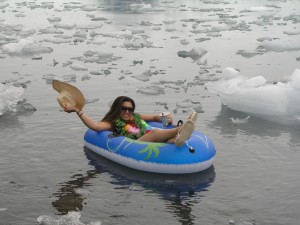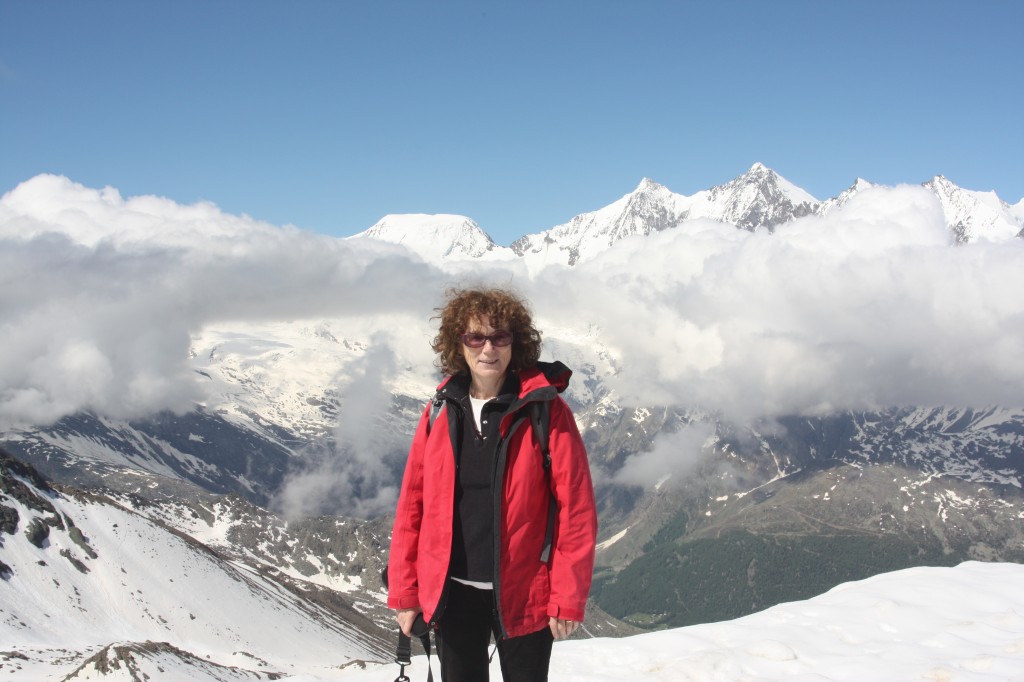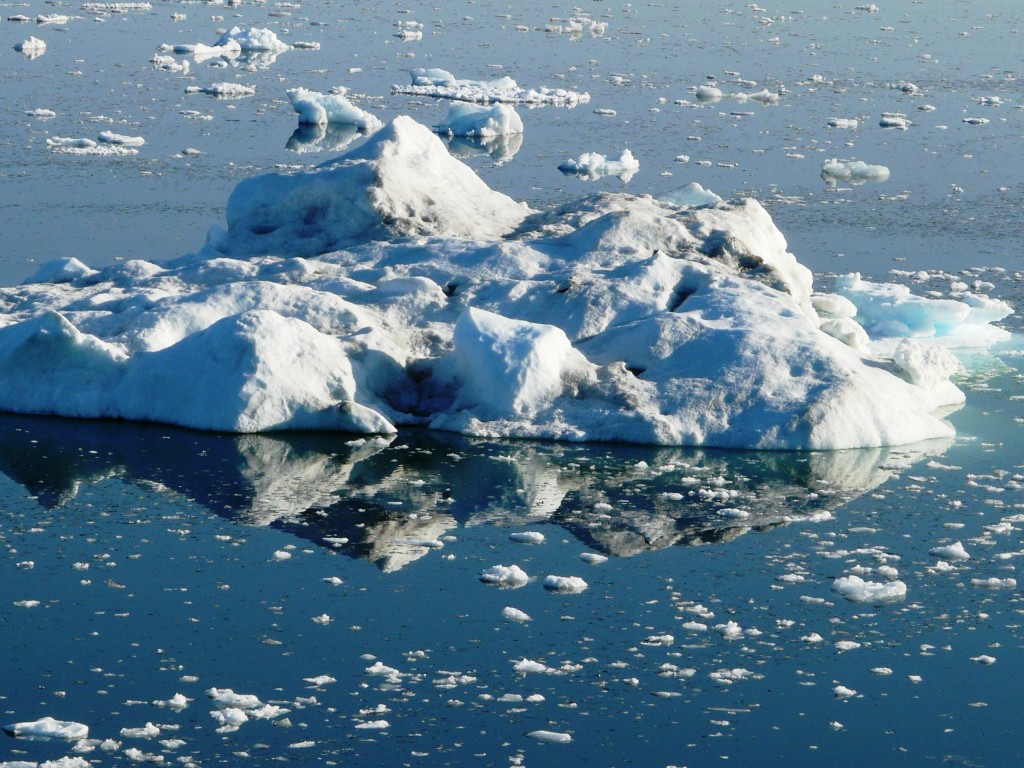Search Results for Tag: IPCC
Ice Blog back online!
Apologies for the absence of icy news on the blog over the past three months. I was collecting new stories and pictures of glacier development in the Swiss Alps during a hiking holiday and unfortunately slipped on some ice. It has taken me three months to recover, but before that I did take plenty of pictures, some of which will be appearing on the blog at some point in the next few weeks. I first visited that particular area in 1984, so have photos as well as memories of the glaciers as they looked then, and now. A comparison shows major changes. Many areas which were then iced over are now completely ice free.
In the meantime, of course, there has been no shortage of news and stories in the world at large relating to the polar regions and climate, including the annual sea-ice minimum measurements and the IPCC report.
As for the sea-ice measurements, the scientists from Germany’s Alfred Wegener Institute say the fact that the sea ice covered a bigger area than last year does not mean the ice pack is recovering. Its extent is still very low compared to the long-term average, and is in line with an overall trend towards less of the stable, thicker multi-year ice. A new study published this week suggests the Arctic will be ice-free in summer within 25 years. See this summary and context from the Climate News Network: Ocean damage is worse than thought.
The IPCC report includes a lot more data on developments at the poles, which was lacking in the last report. Ice melt from the Greenland and Antarctic ice sheets are shown to be playing a much greater role in increasing sea levels than previously thought. There’s a brief summarizing article on the DW environment page.
More on the “state of the ice” in the coming week. Please look out for regular posts from your Ice Blogger again from now on. It’s great to be back in action.
Ex-IPCC chief: 5°C warming?
The former chair of the Intergovernmental Panel on Climate Change says global average temperatures could reach five degrees centigrade above their pre-industrial level. British scientist Sir Robert Watson, who chaired the panel from 1997 until 2002, said the world had missed its chance to keep emissions below the level needed to keep to the 2°C maximum target set by the international community.
Speaking at a symposium on “Preventing global con-communicable diseases through low-carbon development” at the London School of Hygiene and Tropical Medicine, (LSHTM), Professor Watson said the chances of keeping temperature rise below three degrees are fifty-fifty, and the rise could be as high as five degrees. That would mean the Earth warming more than it has since the end of the last Ice Age. The consequences for the planet would be dramatic.
In a report for the “Climate News Network”, environment reporter Alex Kirby quotes Watson as saying: “All the promises in the world, which we’re not likely to realise anyway, will not give us a world with only a 2°C rise. All the evidence, in my opinion, suggests we’re on our way to a 3°C to 5°C world.”
The British expert is science director of the Tyndall Centre for Climate Change Research at the University of East Anglia, UK, and chief scientific adviser to the UK Government’s Department of Environment, Food and Rural Affairs. He says there are solutions available to tackle climate change, but a lack of political will and moral leadership to implement them. Emissions are continuing to rise at a rate which makes it highly unlikely the two degree target can be adhered to.
“When I was chairing the IPCC we were all very optimistic that we’d have a global agreement to limit emissions, though we knew it would be difficult. But we were hopeful that emissions would not go up at the tremendous rate they are rising now,” says Watson.
More on this story at Climate News Network
New climate model says 2° target not out of reach if….

The Hamburg scientists say there is a direct connection between the melting of the Arctic sea ice and global warming
Scientists from the Hamburg-based Max-Planck-Institute of Meteorology and the German Climate Computing Centre have calculated that the 2° limit for global warming could still be kept to. However, it would require immediate drastic reductions in carbon dioxide emissions. So what’s new? I hear you say. The new element is the model the scientists are using. The new model developed by the Max-Planck-Institute using the high-powered computer capacity of the Hamburg centre integrates additional factors into its simulations for the 21st century, including the complex carbon cycle and dynamic role of vegetation, and compares numerous climate models from around the world with each other.The simulations indicate that if the CO2 concentration continues to rise as it is doing, we will be facing not only a considerable rise in temperature, but also an increase in the speed of ocean acidification.
![]() read more
read more
Scientists and the Media
The University Centre in Svalbard (UNIS) in Longyearbyen is the world’s northernmost higher education institution. Unsurprisingly, Arctic biology, geology, geophysics and technology are the specialities here.

(Glaciology Prof. Doug Benn with colleagues heading for field trip to Longyearbyen glaciers – and me at the start of the trip with them.)

I was glad to have the chance to meet up with some of the experts. As well as Gunnar Sand, mentioned in a previous post as Director of the Longyearbyen CO2 Lab, I had the chance to talk to Professor Hanne Christiansen
an expert on permafrost and head of Arctic Geology at UNIS,

(on the staircase outside her office at UNIS)
and Professor Doug Benn pictured in the last entry heading up to the glaciers with two junior colleages.
As well as Arctic permafrost and glaciers (more on both later)I was interested to hear their views on climate change in general and the role of the media in particular. I was not surprised to encounter some wariness from scientists working out on the field towards journalists in view of the huge dimensions the controversy over climate has taken on in the media. Let me just share a statement from Doug Benn, who runs a field project in the Himalayas as well as his work in the Arctic, on the debate – and fuss – over the wrong figure in the IPCC report and the ensuing lack of confidence in the IPCC and even climate science in general. Doug stresses the procedure by which the error got into the report shows up serious deficits, but he also sees a lot of responsibility for what followed with the media.

“The whole impact of that whole debate was amplified both in terms of the disaster scenarios and the credibility of the IPCC by the way that media covered that particular issue. And in fact what happens is that science carries on on a much more level keel. Science is not undergoing the same mood swings that the media went through on that. The majority of scientists are plugging away, gathering good data on environmental changes that are going on, quietly publishing their results in journals, and slowly a view emerges. And so I do think it would be good if the media could correct its tendencies to go for the sensation, and of course there’s a long tradition in the media that anything that’s new and exciting is going to get prominence. But actually that does not serve science well. Mostly science proceeds by slow, careful steps and gradually pictures emerge and it takes us a long time to make up our minds about what’s happening in particular systems. Now over the whole issue of climate change and the global impact of climate change both governments and the media and indeed environmental organisations have been rather impatient, and they want definitive statements about what’s happening, we want action, we want decisions made now. And the way science works is not really compatible with that. I think the headlong rush into declaring global warming as a global disaster has been rash. This is not to say we don’t face environmental challenges, but simply that the rush has been unfortunate and actually we still need to do good science, to think critically about things. And as soon as you replace critical investigation with belief and dogma, you’re no longer doing science. Science needs the media, but it does have rather an uneasy relation with it because of these things I’ve been talking about. “
Thanks for taking the time to share those thoughts, Doug.
Climate scepticism on the rise?
A poll conducted recently for the BBC indicates that the number of people in the UK who are sceptical about science has risen. Of the 1,001 adults who were questioned, 25% said they did not think global warming was happening. BBC news says this shows an increase of 10% since a similar poll in November.
The percentage who accepted climate change as a reality apparently fell from 83% in November to 75% in the latest poll, and only 26% of those interviewed said they believed climate change was happening and “now established as largely man-made”.
The poll was conducted by Populus, the same group who carried out a similar poll for the Times paper in November 2009. At that time, 41% agreed climate change was happening and was largely the result of human activities, so that would appear to be a considerable drop.
Although these polls refer to the UK – home to the University of East Anglia, at the centre of the leaked emails controversy – I feel sure the trend will not be limited to that country.
Populus poll for bbc results
It appears to confirm my fear that the email scandal and the faults in IPCC reports have seriously damaged the credibility of climate science.
The failure of the Copenhagen summit after all the hype could also have made a lot of people doubt the seriousness and urgency of the climate change issue.






















Feedback